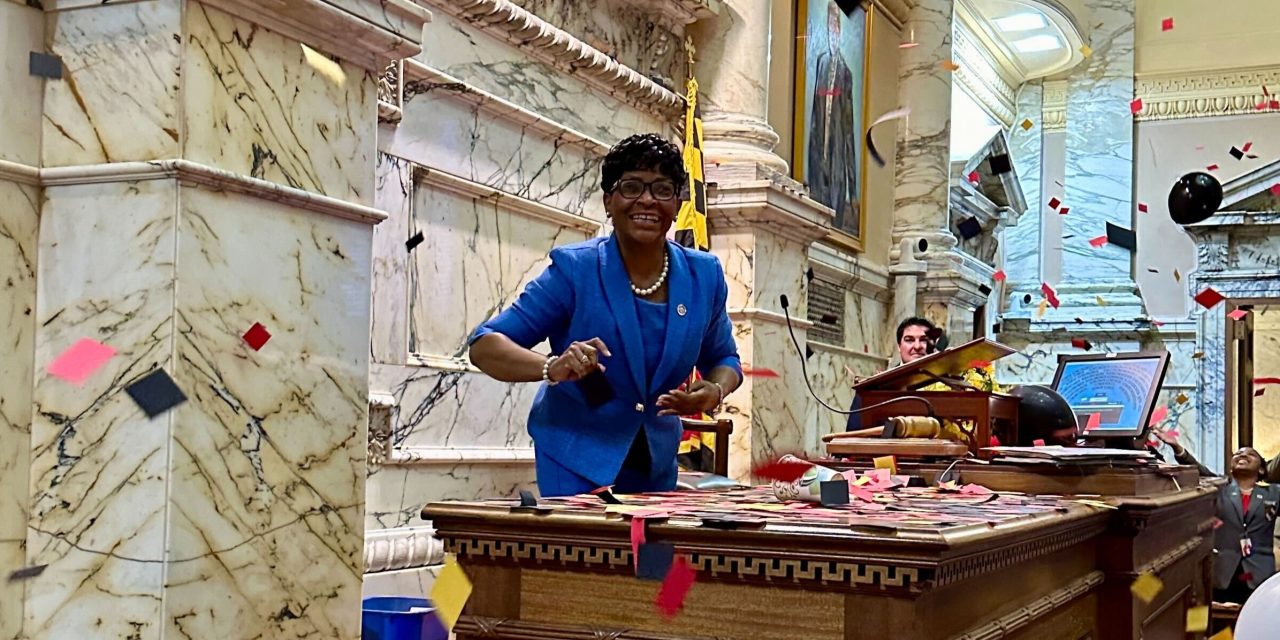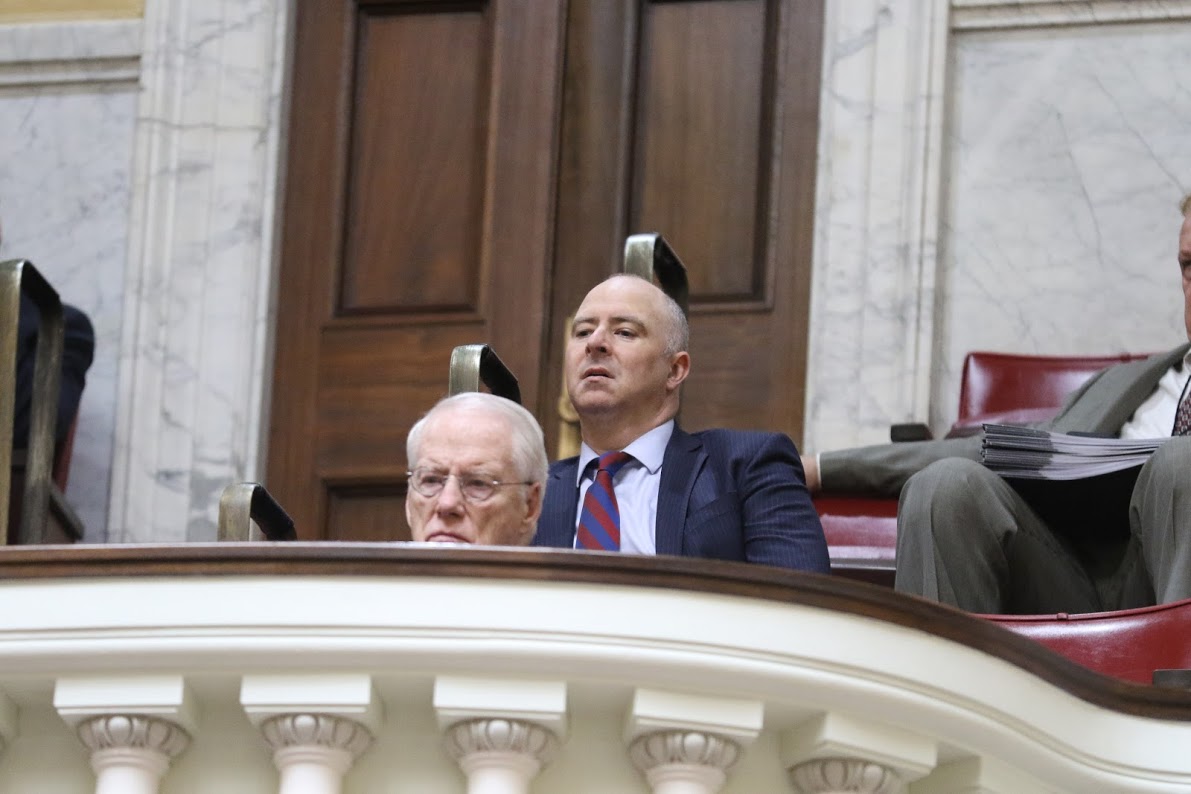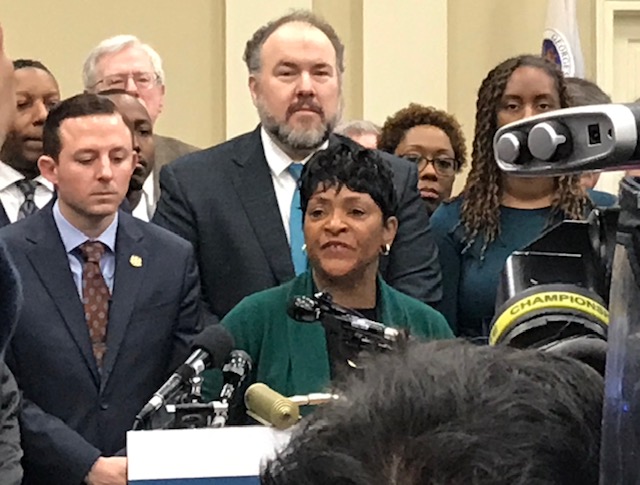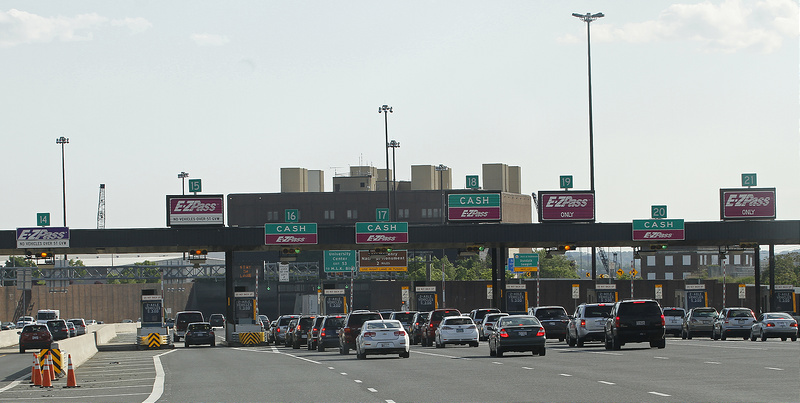By ANGELIQUE GINGRAS, KIERSTEN HACKER, SAPNA BANSIL, LYDIA HURLEY, TYRAH BURRIS AND STEPH QUINN
Capital News Service
ANNAPOLIS – Maryland lawmakers raced the clock toward their end-of-session deadline late Monday, approving a capital budget plan and an emergency aid package for Baltimore’s Francis Scott Key Bridge in the hours before midnight.
The capital budget was a top priority for Democratic leaders, authorizing the creation of more than $1.7 billion for construction, land acquisition and building projects all across the state. It passed unanimously at its final stage in the Senate with less than four hours until the deadline.
The PORT Act, a measure to help Baltimore recover from the disastrous collapse of the Key Bridge in March, also passed the Senate and headed for the governor’s desk. That act provides income replacement for displaced workers in the Port of Baltimore, incentivizes businesses to stay in the city, and sets up a scholarship for families of construction workers who die on the job.
“I feel like we accomplished all our major objectives, moved things off, protected Marylanders from future risks out there, responded to emergencies,” Senate President Bill Ferguson told Capital News Service shortly after midnight. “It was a great year.”
This year’s 90-day legislative term opened in January with a staggering number of bills. Committee sessions often ran through dinnertime, and the chambers held multiple daily floor sessions, sometimes on weekends, in the session’s home stretch. Looming over the legislature in the final two weeks was the devastation of the Key Bridge collapse, prompting lawmakers to scramble to put together the last-minute recovery bill.
As federal, state and local officials focused on that task in the Port of Baltimore, lawmakers kept working to get other legislative priorities resolved several days in advance of the April 8 deadline. They passed the state budget – a $63 billion spending plan for the 2025 fiscal year – late last week.
Despite all the work left to be done on the final day of session, Monday had a celebratory feel. The Senate paused its work around 3 p.m. to watch the solar eclipse. Donned in seersucker suits, Maryland-flag outfits, decorative ties and flashy jackets, lawmakers gathered outside the State House with their eclipse glasses to witness the event.
“This is a nice little change of pace to be able to have everybody come out and see something as special as this eclipse,” said Senate Minority Leader Stephen Hershey, R-Caroline, Cecil, Kent and Queen Anne’s.
“We’re going to have to write a report on this in committee,” Sen. Mary Beth Carozza, R-Somerset, Wicomico and Worcester, joked with her colleagues.
Gov. Wes Moore was also around town Monday to see his top agenda items cross the finish line. The governor has been in Baltimore for much of the past two weeks, focused on the bridge recovery, but told reporters he didn’t want to let up on the effort to pass his legislative proposals.
“This is a remarkably successful session for the people who asked us to come here and represent their business,” Moore said during a visit to the House of Delegates.
As the clock ticked towards midnight, tension mounted. Key legislation left on the docket faced debate from both sides of the aisle. Each bill had to get a passing vote by the end of the day or die at the stroke of midnight.
One winner was Pimlico racetrack, home of the Preakness Stakes. Lawmakers approved a redevelopment plan and authorized a new training facility. Del. Kathy Szeliga, R-Baltimore and Harford, peppered Ways and Means Committee Chair Vanessa Atterbeary, D-Howard, with questions about the cost of the measure, prompting low rumbles of aggravation from lawmakers in the room. It passed the House handily, with a vote of 105 to 32.
In the Senate there was a contentious debate on the Gun Industry Accountability Act, which allows the attorney general to sue gun manufacturers and dealers. A number of Republican senators took turns speaking in opposition to the bill and questioning its constitutionality. It passed largely on party lines, sending one of the most prominent gun regulations taken up this term to the governor’s desk.
The governor’s housing proposals also met with approval, including the ENOUGH Act, a bill that allows targeted grants to address childhood poverty. The measure fulfills one of Moore’s campaign promises.
As the night drew to a close, speakers spoke more and more quickly to get all the business done before midnight. The House and Senate both worked all the way until the last minute, and state officials joined lawmakers in applause as confetti and balloons then filled the chambers.







Recent Comments